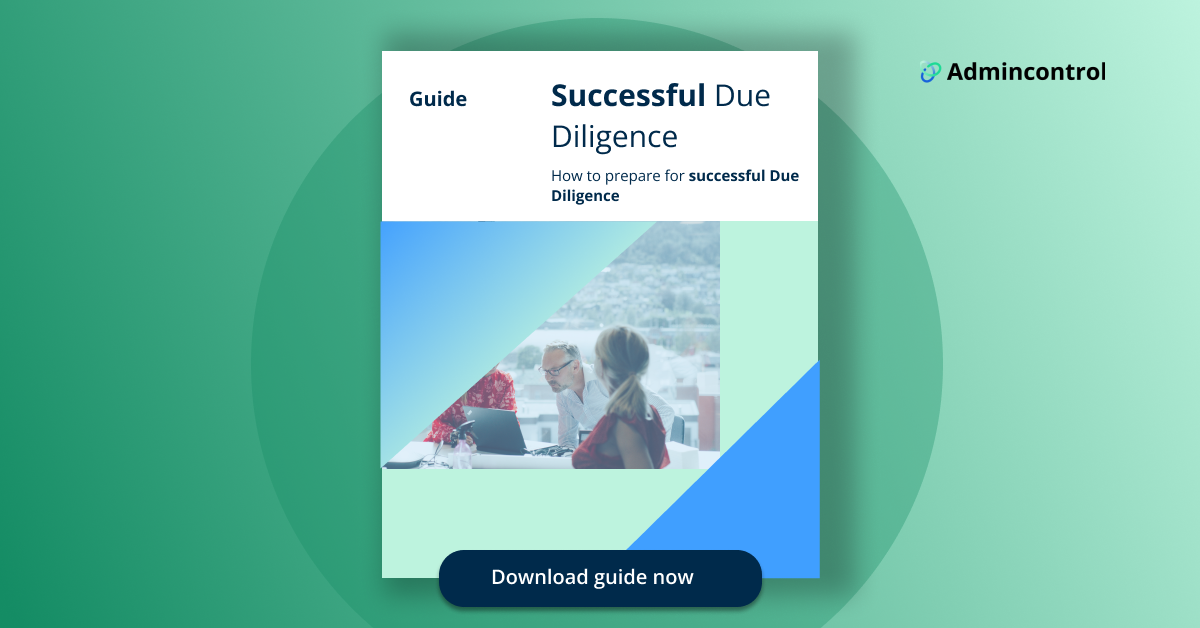In our annual review of deal activity and data room usage, we explore the trends and events shaping merger and acquisition (M&A) transactions during 2023 and global predictions for the year ahead. Working alongside our customers, we gain a unique insight into how global events impact the pace of dealmaking and the tools used to drive progress.
World events shaped the M&A landscape more than ever in 2023. In their end-of-year round-up, Reuters highlighted how high interest rates worldwide and the economic slowdown hampered M&A activity to its lowest level in ten years.
Total M&A volumes fell 18% to about $3 trillion, according to the most recent data from Dealogic, the lowest since 2013 when deal volumes were at $2.8 trillion.
Reuters
Reuters points to the rising costs of acquisition financing and companies struggling with low credit ratings as particularly troublesome for private equity (PE) firms. While global PE acquisition volumes declined by 38% in 2023, Europe experienced a slump of 32%.
Despite this somewhat gloomy perspective, the last quarter of 2023 saw a global year-on-year upturn of 19%, predominantly fueled by the energy sector. Whilst elections in key economies during the next 12 months, including the US, typically increase deal nervousness, predictions remain for a more robust year ahead with an established pipeline and a pragmatic attitude towards continued volatility.
In truth, savvy dealmakers will always explore opportunities despite economic or regulatory turbulence. As one executive at JPMorgan Chase points out, there’s an acceptance that it is just how things are now, representing a step change in resilience and determination to forge ahead when the right deal surfaces.
Data room usage in 2023
Reflecting on the evolving ways data rooms are used, preparation data rooms (a data room that has not been opened to a third party) continue to impact overall usage. In 2021, we saw how companies spent, on average, just under a month preparing for a new transaction. The preparation data room has facilitated this vital stage, enabling sellers to upload, sort and organise vital documentation well before the intense due diligence process and subsequent Q&A.
2023 saw a similar picture, with our data room customers utilising the advanced features and security of a preparation data room to safeguard business-sensitive data for the deal process ahead, but also for business-as-usual needs.
Our customers continue to utilise preparation data rooms, although not all have opened them up to prospective buyers. Given the benefits of secure storage for confidential documents and the intuitive collaboration features of a data room, many of our customers depend on data rooms without necessarily having a deal in the pipeline. Of course, the uncertainty in M&A activity will also play its part here; with economic volatility reducing deal volumes, the need for new data rooms is undoubtedly impacted, too.
Q&A usage is the beating heart of a data room
In 2023, our customers continued to manage the intensive Q&A stage of a transaction within a data room. Using the intuitive and deal-specific Q&A feature, buyers and sellers can scrutinise large volumes of information more confidently and manage responses within controlled timeframes. The due diligence process puts the Q&A stage into sharp focus. Given the make-or-break nature of due diligence, a streamlined Q&A process is critical to the overall deal lifecycle.
Data room administrators can assign responsibilities for responses, track deadlines for answers, and quality assure questions before publishing. The intuitive nature of the module, together with its role in drilling into the specifics of a deal, is fundamental to keeping a deal on track and preventing avoidable or frustrating delays.
Predictions for dealmaking in 2024
If 2023 was deflating for dealmakers, will 2024 be more buoyant? With continued economic uncertainty and geopolitical events such as the Ukraine-Russia war and Middle East conflict taking centre stage, choppy waters are still expected.
However, analysts predict a more positive outlook going forward from Q1. Economically speaking, the World Economic Forum (WEF) anticipates what it calls ‘green growth’ - the move to a more sustainable global economy. While regional hotspots will vary, and experts diverge on how positive the growth will be, the conclusion is still one of progress.
Intelligence firm S&P Global also highlights an expected upturn in volume versus 2023. While the highs of 2022 are not anticipated, dealmakers are expected to find different valuation models to encourage sellers to move ahead.
Pressure dynamics are simply going to drive people to start trying to not necessarily find deal opportunities, but to find ways to work with sellers to come up with different [valuation] models.
S&P Global Market Intelligence
While the outlook for 2024 is variously described as ‘cautious’ or lukewarm’, it is still a much stronger picture than last year. Furthermore, the sectors driving the more optimistic predictions are similar to last year: artificial intelligence (AI), cloud computing, healthcare, and energy.
In a survey of dealmakers conducted in October 2023, cybersecurity and AI were highlighted as the strongest opportunities for deals in technology during 2024. The opportunities for big tech companies to partner with AI start-ups are noted as a chance to exploit the benefits of generative technologies as they embed into our world.
We should expect to see increasingly high volumes of deal activity within this space as strong macro trends, including cloud computing and AI, continue to fuel growth in this sector.
S&P Global Market Intelligence
Cybersecurity risk and reward
As the year ahead unfolds, the impact of cybersecurity on dealmakers will ramp up. Security experts predict that multi-factor authentication (MFA) will become increasingly standard across applications and digital tools, as one example. Technology changes can be hard to keep pace with, though, and it is why, at Admincontrol, we invest a lot of our time and expertise in exploring and testing new ways to strengthen the security features of our products.
 Evolving our products in line with emerging technologies is essential in keeping pace with the threats in a digitally connected world.
Evolving our products in line with emerging technologies is essential in keeping pace with the threats in a digitally connected world.
Our approach to enhanced data security and, in particular, the impact of cybersecurity means our team continuously tracks the development of new and existing technologies that can help protect the invaluable data and information stored within our data rooms. As AI and machine learning capabilities transition to an era of implementation, we see opportunities for good and nefarious means. Cyber experts predict that AI will be a weapon of choice for cybercriminals generating phishing, deep fake and Dark Web attacks, moving to what they describe as ‘3D attacks’ that exploit voice, text and video.
Cybersecurity predictions are usually gloomy and with good reason. For dealmakers in 2024 and beyond, expanding AI and continuing digital transformation efforts by companies worldwide will shape how deals are done and the risks involved for highly confidential data. Utilising data rooms with enhanced security features that meet internationally accepted standards will be imperative to managing cyber risks from threat actors and genuine human error alike.
Conversely, however, the advances in cybersecurity strengthen new opportunities for dealmakers, unearthing emerging sectors and innovative start-ups potentially ripe for an acquisition or merger.
In summary
Undoubtedly, as markets and companies face technological disruption, activist shareholders up the ante on sustainability demands and geopolitical events bite deeper, dealmakers must continue to expect the unexpected.
2024 is underway, and inflation has largely stabilised since the last quarter of 2023, ushering in a more stable economic landscape for M&A activity. Emerging technologies continue to shape opportunities in sectors as varied as healthcare and energy. The result is that while analysts are cautiously optimistic, the outlook is more positive than the same time last year.
Ways of working, deal timelines and success rates will always ebb and flow, but determination and flexibility will be critical. For Admincontrol customers, technology’s influence on the deal process will uncover new opportunities to adapt to the challenges ahead. We look forward to another interesting year!





